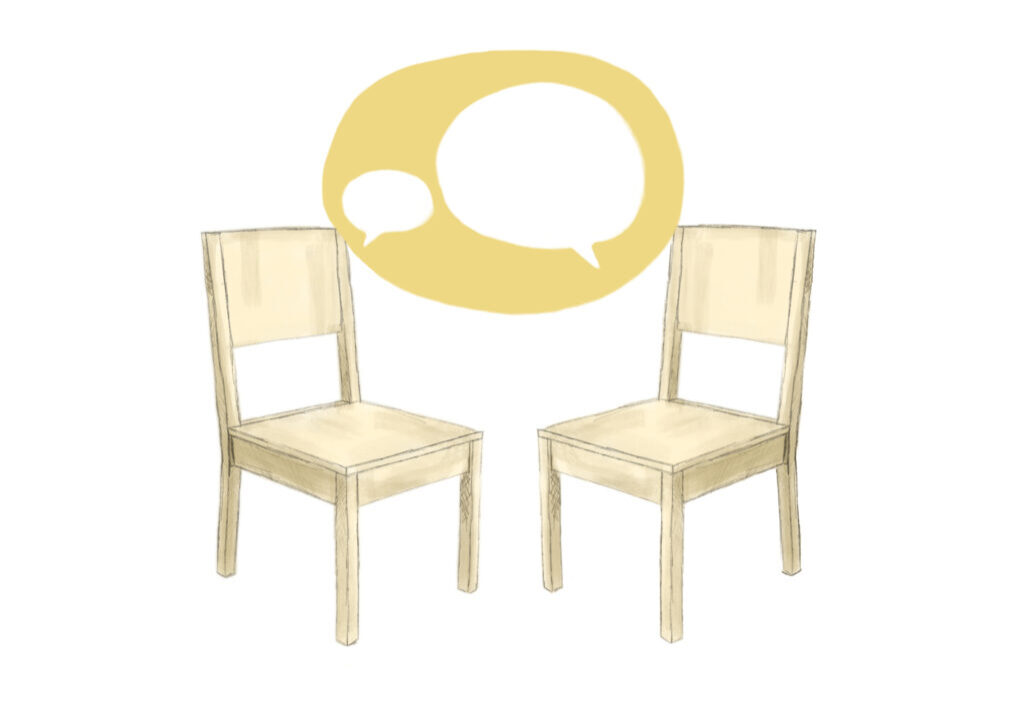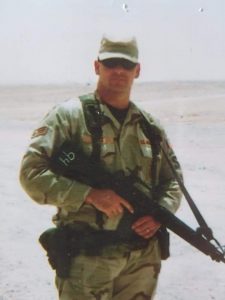Defining Moment

“I had a mother tell me, ‘Bring my boy home safe.'”
[iframe width=”100%” height=”166″ scrolling=”no” frameborder=”no” allow=”autoplay” src=”https://w.soundcloud.com/player/?url=https%3A//api.soundcloud.com/tracks/555520899%3Fsecret_token%3Ds-eKDoa&color=%23ff5500&auto_play=false&hide_related=false&show_comments=true&show_user=true&show_reposts=false&show_teaser=true”]
Produced by Rebecca Werner.
Transcript for Defining Moment
At the time that 9/11 kicked off, I was working as a civilian police officer. Like the rest of the country, that impacted me greatly. Just getting my mind wrapped around that, “Wow, we’ve been attacked.” And it hurt. It was a physical pain inside. “Now three thousand people are, are gone.” It was a sobering moment, and I really felt emboldened about doing something. I didn’t know exactly what form that was going to take, but I knew that there was something that I could give. And it happened the way that it happened. I joined the Air Force and became a Ground Combat Specialist and went to Iraq.
When I realized that I was on the list to go—I had been called up—as you can imagine, there was every form of emotion running through my body. I was married to my wife and we had four kids. “What do I do here? I feel this obligation to go. I feel compelled to go.” And my rational brain, my emotional heart, my loving father and husband was saying, “Don’t do anything like that.” But once I got there, once I got to the Middle East, you’re totally focused on everything that’s in front of you because it’s an enormous task. You’re in a combat environment, you’ve got people you’re responsible for, millions of dollars worth of hardware that you’re responsible for, you know? All these things are all coming into play subtly, but yet they’re there. And that was my second time in combat, which was quite a bit different. I had a thirteen man crew that I was in charge of. And I had a mother tell me, “Bring my boy home safe.” And if that has never occurred to you, or if that’s never happened to you, that is a defining moment in your life, when a mother tells you that. For me, it was a defining moment. It was a physical weight. And I even have a physical reaction now—got goosebumps kicking out. I took it seriously, you know? I mean, these are young men. These are husbands, and sons, and fathers. And no, I wasn’t sure of myself; it was the first time I had been in a situation like that. Everybody was fine. I took some damage. I didn’t get out of there unscathed.
I miss the camaraderie. I miss that—look at that, I’m starting to get goosebumps again. I, I miss that connection with my guys. No, I don’t miss being shot at. I don’t miss being a hundred and twenty degrees outside. I don’t miss the sand in every part of my body and everything that I own probably still 14 years, 15 years later. I don’t miss any of those things. What I remember, what I miss is looking over at the guy next to me and going, “Well, he’s sucking as bad as I am, and he’s still here, so I can’t leave.” I miss that. I miss knowing that if I was to fall down, there’s going to be twenty hands reaching for me to get back up, ‘cause that’s what you do. And that’s why you’re there.
Hold a Conversation
Can you imagine leading a conversation about this story? Where? With whom? What kinds of questions would you pose? (See How to use the questions for reflection for one approach.) Please email your questions to us or post them in the comment box for our consideration. If you use them in an actual discussion, let us know how the conversation went.

